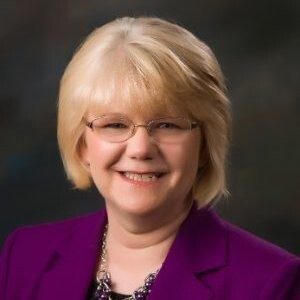Feds question SNF billing and payment practices
Two reports by federal health investigators have raised questions about billing practices at skilled nursing facilities (SNFs) for therapy services and about payments for ambulatory surgical center (ASC) services provided by SNFs.
Issued on December 22, 2010, the report by the Office of Inspector General (OIG) in the Department of Health and Human Services said that an examination of SNF billing to Medicare for higher paying therapy services from 2006 to 2008 showed that payments increased by nearly 90%, even though beneficiary characteristics remained largely unchanged.
In the second report, issued December 17, 2010, the OIG said a sample of payments indicates that Medicare contractors made at least $6.6 million in overpayments to ASCs for services under Medicare Part A for the same two-year period.
The December 22 report, which said for-profit SNFs were far more likely than nonprofit or government SNFs to bill for higher paying resource utilization groups (RUGs), revealed that payments to SNFs for ultra high therapy rose from $5.7 billion to $10.7 billion during the two-year period.
“Taken together, these findings raise concerns about the potentially inappropriate use of higher paying RUGs, particularly those for ultra high therapy,” the OIG report said as it made these recommendations:
CMS should monitor overall payments to SNFs and adjust rates, if necessary.
CMS should change the current method for determining how much therapy is needed to ensure appropriate payments.
CMS should strengthen monitoring of SNFs that are billing for higher paying RUGs.
CMS should follow up on the SNFs identified as having questionable billing.
CMS concurred with three of the four recommendations, but did not agree to change the method for determining how much therapy is needed. It did, however, say it is committed to pursuing additional improvements to the SNF payment system.
The report prompted Bruce Yarwood, departing president and CEO of the American Health Care Association (AHCA), to defend his industry and its practices. “Our patient population consists of more medically complex patients, and often necessitates placing their care in a higher RUG designation,” he said. “We have and we will continue to work cooperatively with CMS to optimize an alignment of incentives, and RUG-IV was designed to achieve this.”
Yarwood pointed out that AHCA’s 2010 Quality Report reveals that more than 50% of Medicare patients treated in nursing facilities are categorized as having “major extreme severity of illness,” and that nursing facilities represent the lowest-cost institutional setting for these patients. He also noted that since 2003, there has been an annual increase in the percentage of Medicare beneficiaries discharged within 100 days.
“Moving forward into 2011, we intend to work cooperatively with providers, lawmakers, and the regulatory community to ensure this positive trend continues,” Yarwood said.
Meanwhile, the December 17 report regarding ASC services payments was based on a review of 100 services that showed that $103,000 was incorrectly billed to Medicare Part B even though they were included in the SNFs’ Part A payments. As a result, the OIG said, Medicare paid twice for the services.
“Based on our sample results, we estimated that Medicare contractors made at least $6.6 million in overpayments to ASCs for services provided to beneficiaries in Part A SNF stays in CYs 2006 through 2008,” the report said. “These overpayments occurred because ASCs did not have the necessary controls to prevent incorrect billing to Medicare Part B.”
In addition, the OIG said, payment controls at CMS were not designed to prevent and detect Part B overpayments to ASCs for services subject to consolidated billing requirements of federal law, of which the OIG added, ASCs “were either unaware or did not fully understand.”
CMS, commenting on the report, concurred with OIG’s recommendations that it instruct its Medicare contractors to:
Recover the $102,879 in overpayments for the incorrectly billed services that were identified.
Review the 20,806 services that OIG did not review and recover overpayments.
Provide guidance to ASCs on consolidated billing requirements and the need for timely and accurate communication between ASCs and SNFs regarding beneficiaries’ Medicare Part A status.
OIG also urged CMS to establish a procedure to prevent Part B payments for ASC services that are subject to consolidated billing. CMS said it will do so. LTL
CMS concurred with three of the four recommendations, but did not agree to change the method for determining how much therapy is needed. It did, however, say it is committed to pursuing additional improvements to the SNF payment system.
Bob Gatty has covered governmental developments for the trade and business press for more than 30 years. He is founder and president of G-Net Strategic Communications, Sykesville, Maryland. Long-Term Living 2011 February;60(2):14-15

Robert Gatty has more than 40 years of experience in journalism, politics and business communications and is the founder and president of G-Net Strategic Communications based in Myrtle Beach, South Carolina. He can be reached at bob@gattyedits.com.
Related Articles
Topics: Articles , Medicare/Medicaid , Regulatory Compliance









